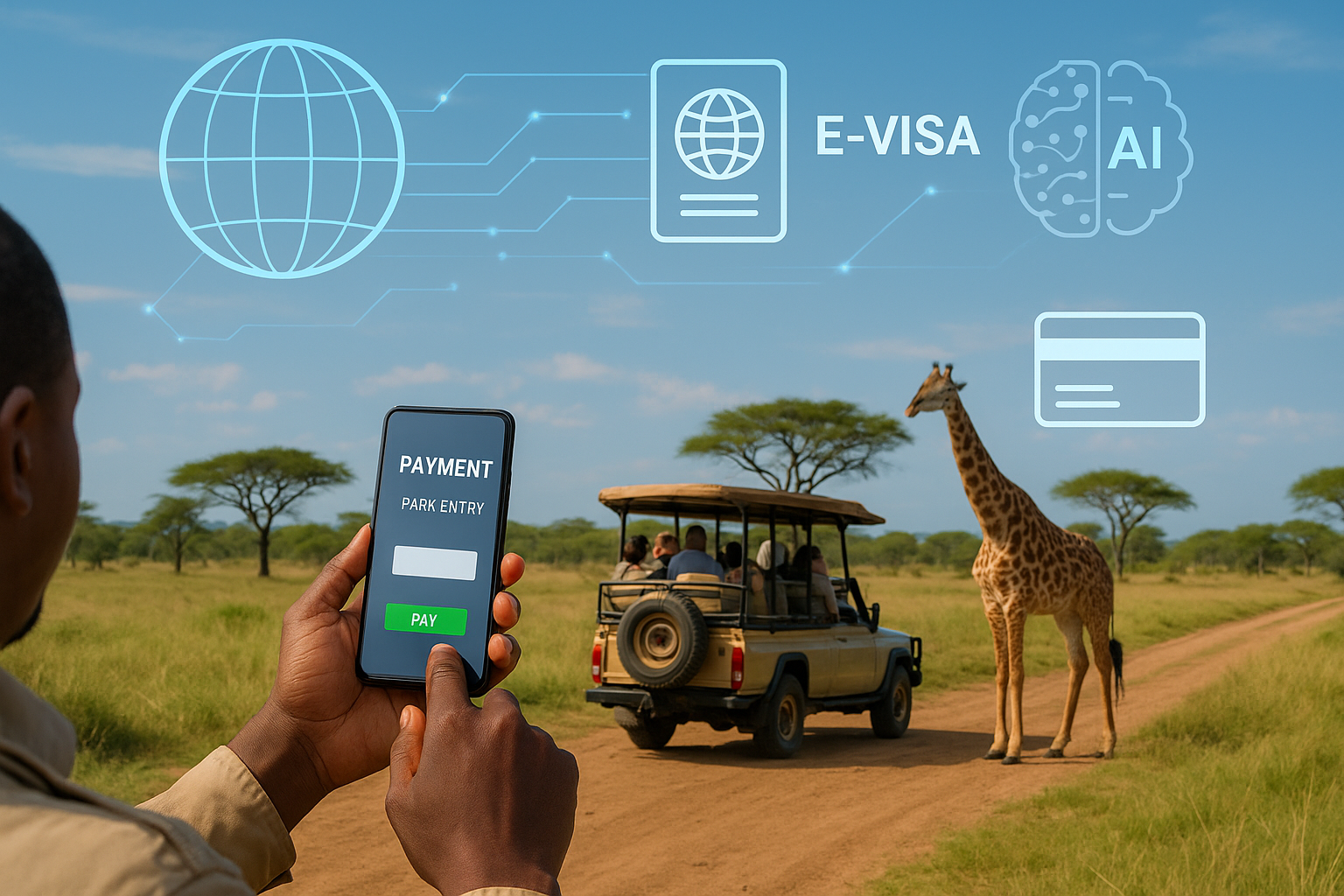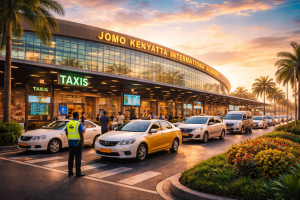Kenya’s travel industry is undergoing a quiet but profound digital transformation. From how tourists book safaris to how they pay for park entry, the country’s tourism ecosystem is shifting into the digital age—driven by innovation, necessity, and changing traveler expectations.
In recent years, the Kenyan travel experience has evolved from paper tickets and cash transactions to a seamless digital journey. The rise of e-visas, contactless payments, and mobile-based bookings has redefined how visitors plan, purchase, and experience their trips. For an industry once dominated by manual systems and in-person transactions, this new digital reality is reshaping everything from park management to customer service.
E-Visas and Seamless Entry
When Kenya transitioned to a fully electronic visa system in 2024, it marked a major milestone in the government’s effort to modernize travel processes. Visitors can now apply for visas online, upload documents, and receive approvals within days. For many travelers, the convenience has made Kenya more accessible—and less intimidating—compared to destinations that still rely on paper-based border controls.
Immigration officials say the digital system has also improved security, reduced queues, and streamlined data collection. By centralizing travel information, Kenya is better able to track arrivals, monitor trends, and plan infrastructure around real demand.
Mobile Payments Revolutionizing Tourism
Few countries have embraced mobile money like Kenya. From city hotels to remote lodges in Samburu, the ability to pay using M-Pesa or card has become standard practice. For small operators and community-based tourism enterprises, mobile payments have opened doors to international visitors and reduced the risks of handling cash.
Recent system upgrades by the Kenya Wildlife Service (KWS), for instance, now require park entry payments via digital platforms. While this move has stirred debate over new transaction charges, it reflects a broader shift toward transparency and efficiency. Tour operators note that digital payments reduce fraud and speed up reconciliation, though they also call for more consultation when implementing changes.
AI and Personalised Experiences
Artificial intelligence is emerging as the next frontier in Kenya’s tourism and hospitality sector. Local travel tech startups and hotel chains are experimenting with AI-driven chatbots, dynamic pricing models, and customer data analytics to personalize experiences.
Imagine a system that learns a traveler’s preferences—birdwatching, hiking, or cuisine—and recommends tailored itineraries in real time. Or an AI chatbot that answers visitor queries about weather, flight connections, and visa policies instantly, without human intervention.
For hotels and tour operators, AI tools are improving efficiency behind the scenes too, from automating bookings and room management to predicting demand peaks and optimizing marketing spend. As competition for tourists intensifies, data-driven insights are becoming essential for survival.
The Data Advantage
Perhaps the most transformative element of all is data. Every online booking, digital payment, and visa application generates information that can inform smarter policy and planning. For Kenya’s tourism authorities, this presents a rare opportunity to move from estimates to evidence—tracking visitor flows, identifying high-potential markets, and understanding seasonal patterns.
Better data can help tailor marketing campaigns, allocate resources, and manage the environmental impact of tourism. It can also empower local communities and small enterprises to understand their markets and improve their offerings.
Balancing Progress and Access
Even as the digital wave transforms Kenya’s travel landscape, the transition has not been without challenges. Connectivity gaps in remote regions, transaction costs, and the digital divide among smaller operators remain concerns. There is also an ongoing debate over privacy and the responsible use of customer data.
Still, most stakeholders agree that Kenya’s future in tourism will be defined by how well it embraces digital transformation while keeping the human touch that defines authentic travel experiences.
The country that pioneered mobile money is now positioning itself as a digital tourism hub for Africa—efficient, data-savvy, and increasingly intelligent. If managed inclusively, Kenya’s digital shift could not only enhance convenience but also make travel fairer, safer, and more rewarding for both visitors and those who host them.





